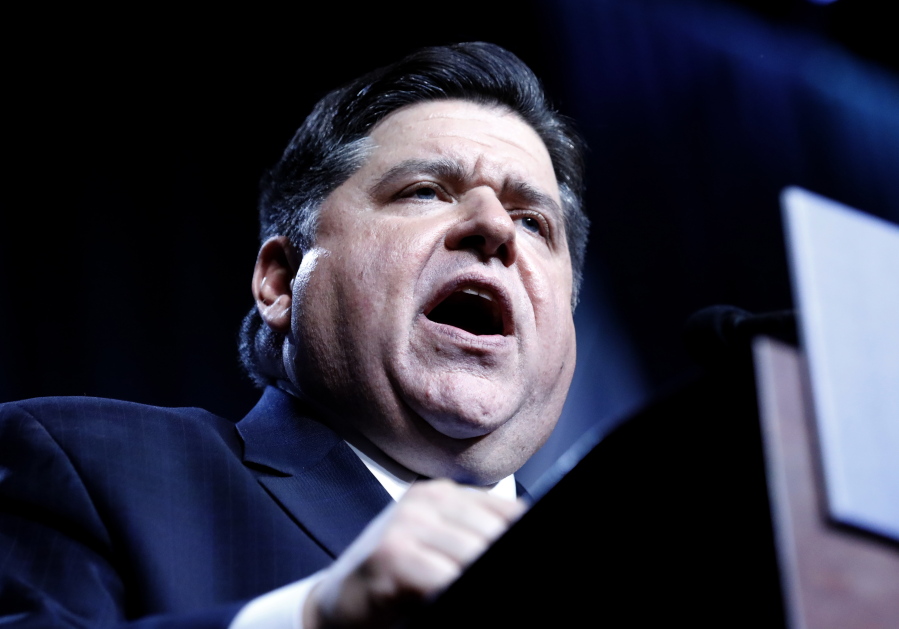JEFFERSON CITY, Mo. — Big-dollar decisions about health care and education will top the agenda in many state capitols as lawmakers convene for their 2019 sessions with a closer balance between Republicans and Democrats.
Some states will be considering anew whether to expand government-funded health coverage to more people after Democrats put a sizable dent in Republican statehouse dominance during the November elections. Others will be wrestling with how to boost salaries for teachers and funding for their public schools.
State officials also will have to address some weighty issues that arose over the past year — how to recover from disastrous wildfires and floods, whether to legalize sports gambling and recreational marijuana for adults, and whether to make changes to their tax codes in response to recent federal laws and court rulings.
Many of the issues have a common denominator: money.
“The No. 1 issue is always taxes or revenues and expenditures,” said Bill Pound, the longtime executive director of the National Conference of State Legislatures. “Given the nature of the economy, given the impact as it’s playing out of federal tax reform, that will take a good deal of attention.”
Trickle-down effect
The tax overhaul signed one year ago by President Donald Trump will have a trickle-down effect on state income tax returns being filed this year, resulting in a windfall for some states. Lawmakers will have to decide what to do with the money and whether to make changes to their own income tax codes.
Sales tax changes also could be on the agenda in as many as 16 states that haven’t yet implemented them after a U.S. Supreme Court decision last summer. That ruling allows states to require online out-of-state retailers to collect taxes on sales made to their residents, a potential source of millions of additional dollars.
When the 2019 legislative sessions begin, Republicans will control 61 of the 99 state legislative chambers (down from 66 before the November election) and will control both chambers in 30 states. Democrats will have full control of 18 state legislatures. Minnesota will have the only legislature with split partisan control. Nebraska has a single chamber, which is officially nonpartisan.
Democratic gains mean there will be closer margins between Republicans and Democrats in most legislative chambers. Democrats also picked up about a half-dozen governor’s offices in the November elections. Republicans will have 27 governors while Democrats will have 23.
The Democratic surge has helped breathe new life into efforts to expand Medicaid coverage to low-income adults under the terms of the federal health care law signed by President Barack Obama in 2010. But a federal judge’s ruling in December that the Affordable Care Act is unconstitutional could bolster resistance among some state lawmakers while the case is appealed.
New Democratic governors in Kansas and Wisconsin will be joining incumbent Democratic chief executives in North Carolina and Montana in pushing for expanded Medicaid programs. But they still must contend with Republican-led Legislatures.
North Carolina has a 2013 law preventing the governor from expanding Medicaid without approval from the General Assembly.
Before Wisconsin Gov.-elect Tony Evers could take office, Republican lawmakers passed measures preventing him from withdrawing Wisconsin from the multistate lawsuit challenging the Affordable Care Act or from withdrawing a work requirement for Medicaid recipients.
Kansas Gov.-elect Laura Kelly told The Associated Press that expanding Medicaid is “a moral obligation that we have as a state.” Her election seemed to boost the chances of that happening, since a bipartisan coalition had passed a bill in 2017 that was vetoed by then-Republican Gov. Sam Brownback.
But conservative Republicans gained seats in the Kansas House at moderates’ expense, and GOP leaders could bottle up Medicaid expansion bills in legislative committees.
Elsewhere, Democratic Louisiana Gov. John Bel Edwards is pushing the first statewide pay raise in a decade for teachers and other school personnel. Governors and lawmakers in Colorado, Kansas and New Mexico are among others considering a funding boost for schools. In Oregon, Democratic Senate President Peter Courtney said a value-added or a gross receipts tax are two possibilities to raise revenue for education.
Oregon lawmakers also could consider a tax on carbon emissions as part of an environmental agenda.
Washington voters in November rejected an initiative to impose the nation’s first tax on carbon emissions. Democratic Gov. Jay Inslee is making a retooled bid at addressing climate change with a proposal that would require utilities to produce carbon-free electricity by 2045, forcing the elimination of power plants fueled by coal and natural gas. He also wants to reduce carbon emissions in fuel used for transportation.
“The people decided not to embrace plan A,” Inslee said recently. But “this plan B is ready to go, and it can pass this year” in a Legislature that has expanded Democratic majorities.



